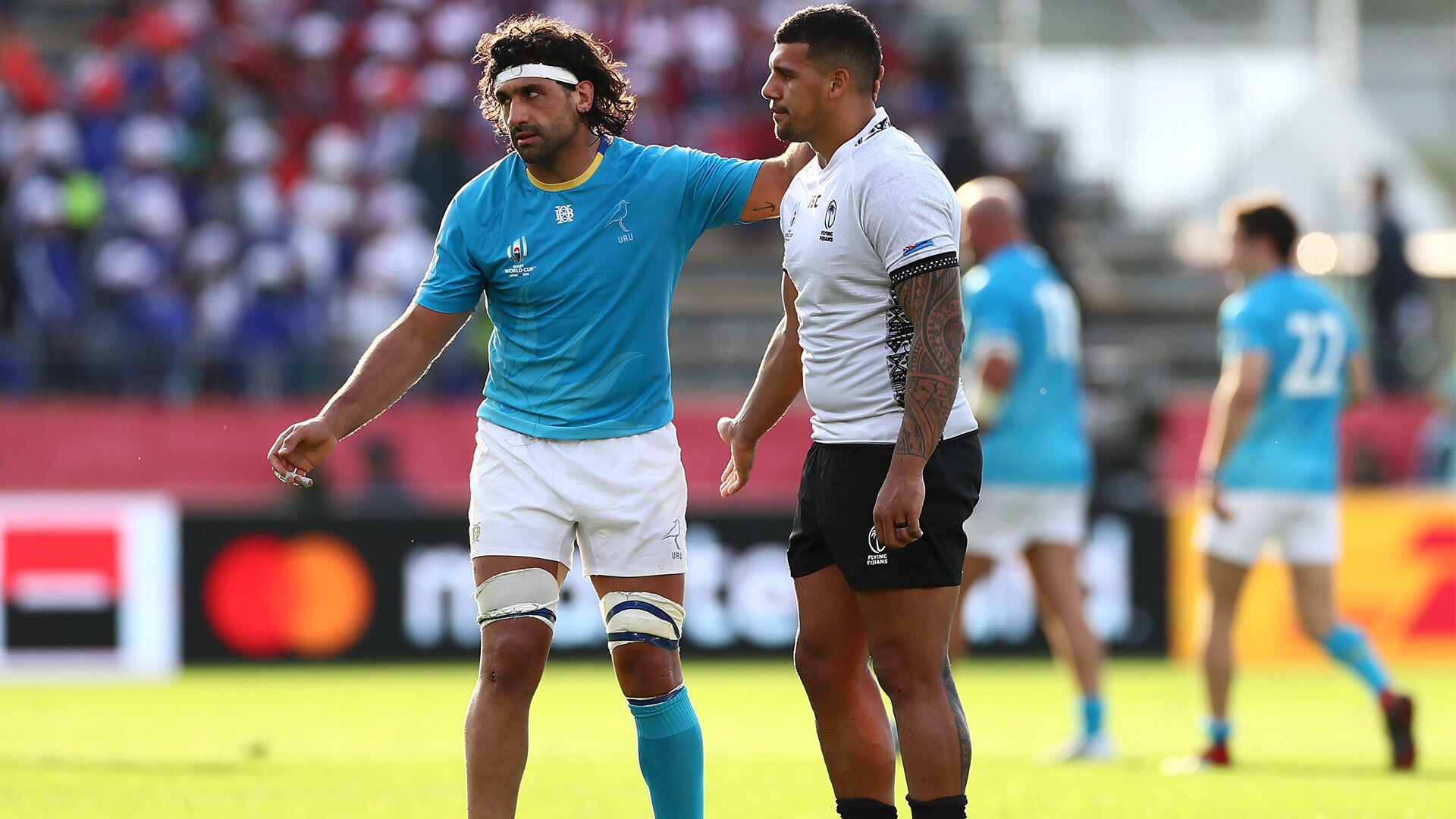World Cup expansion necessary to even the playing field

There are many reasons why the Rugby World Cup should be increased from 20 to 24 teams and in the amazing spectacle at the Kamaishi Recovery Memorial Stadium on Wednesday, two were underlined for us.
The first is that an expansion would allow more countries such as Uruguay to experience the thrills and impetus of unexpected triumph. The second is that it would avoid more countries such as Fiji leaving the scene of their dismay with the grievance of perfectly valid mitigation ringing in their ears.
Uruguay were fully deserving of a win classed as such a shock that 50-1 was available beforehand. In terms of prevailing against the odds, then only Japan’s “Brighton Miracle” over South Africa four years ago outranks it — 66-1.
Yet let us also be clear that if Fiji had felt able to field their best team and if they had not been forced into a four-day turnaround following their bruising encounter with Australia, then El Milagro de Los Teros would have been far more unlikely to happen. Try 500-1.
Because whether the romantics accept it or not, “turnaround” is a huge factor in this modern game of extreme physicality and attrition; so huge that its effects should be minimised as far as possible in a tournament of this scale.
Continued below…
It demeans the integrity and demeans the giant-killing. Yes, David beat Goliath. But Goliath was knackered and his bigger brother had been consigned to quarters for rest.
World Rugby, the governing body, is acutely aware that the format of four groups of five teams makes it impossible to grant ample and equal rest between fixtures; unless, that is, they are prepared to make the event even longer than seven weeks and see it impinging on Christmas.
To be fair, after the farce of 2015 when Japan were made to face Scotland just four days after their Springboks glory, World Rugby vowed to redress the outrageous imbalance in the schedule for the tier one and tier two nations.
It was as absurd as it was shameless. With their resources, the big boys were infinitely more suited to surviving the perils of shorter periods between clashes — except, they were never asked to. It was always the minnows chucked straight back in.
To this end, they assembled a panel of mathematicians to develop a fairer system. And they did. Yet no matter the extent of their genius, the inherent flaw remains: with this number of teams, that number of games, over that number of days, it just does not work.
Particularly when one considers that six, maybe seven, days should be the minimum when it comes to player safety.
With six pools of four, the World Cup would have a fighting chance in the same time frame.
Of course, 24 would also spread the love, and fears that the quality would become diluted are easily countered. Russia have far from disgraced themselves in their opening encounters, while Hong Kong and Brazil would not look out of place.
In 2015, they arrived with just four professionals and were thrashed by Wales, Australia, England and, you guessed it, by Fiji. This time Los Teros came back with 18 pros. Alas, first they must tackle Georgia. In three days.
This article first appeared on nzherald.co.nz and is republished with permission.
Animal prophets have become all the rage in recent years – rumour is that there’s a particularly insightful cat hanging out in Tokyo:

































































